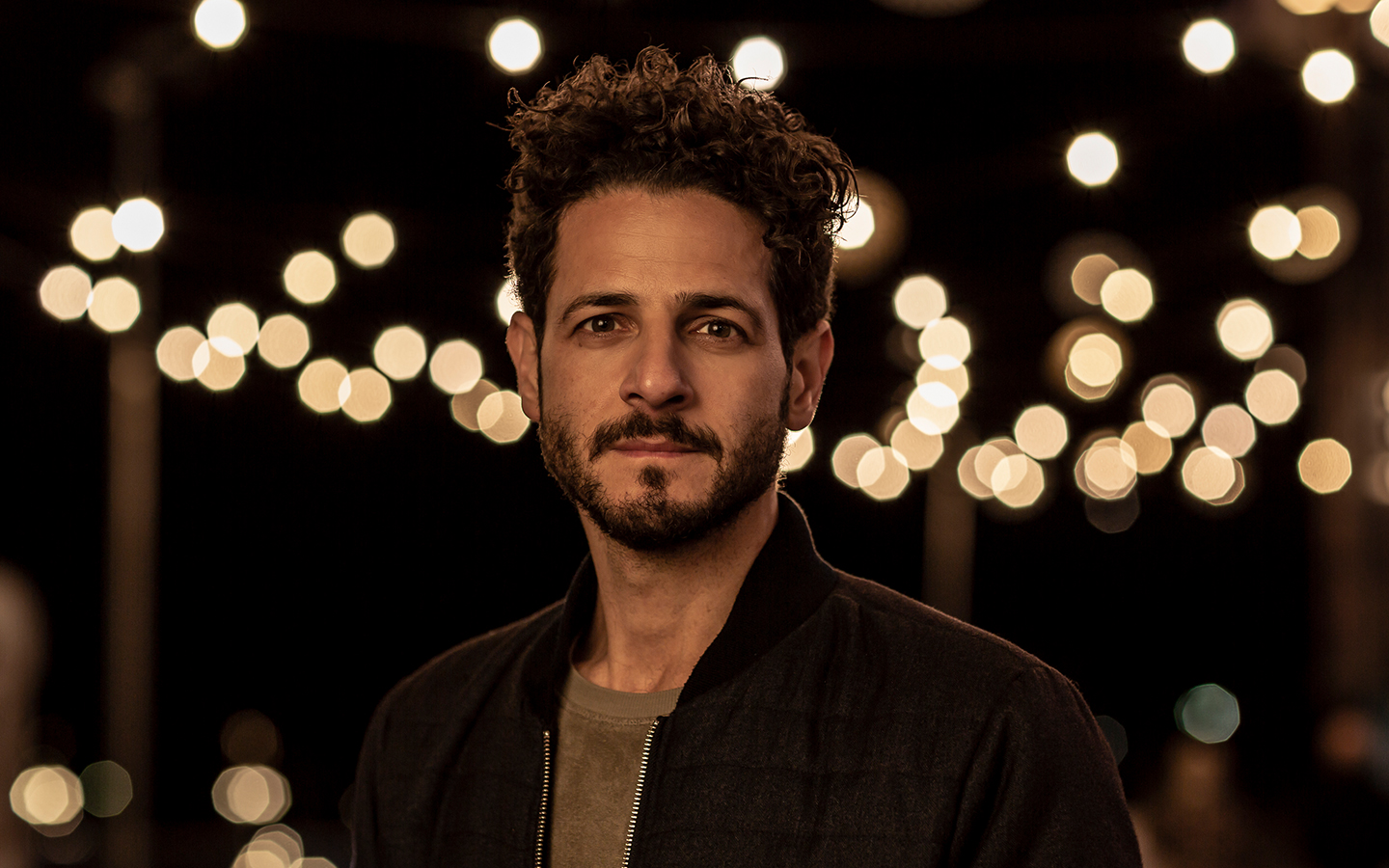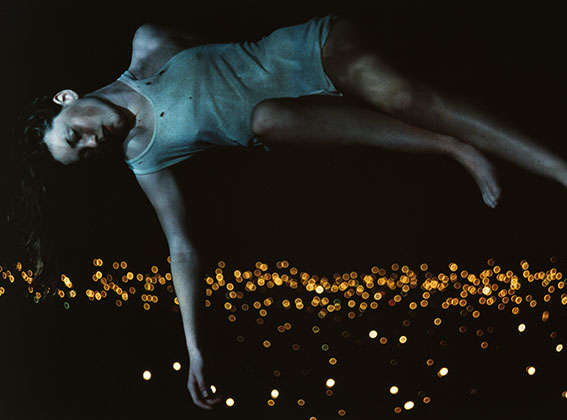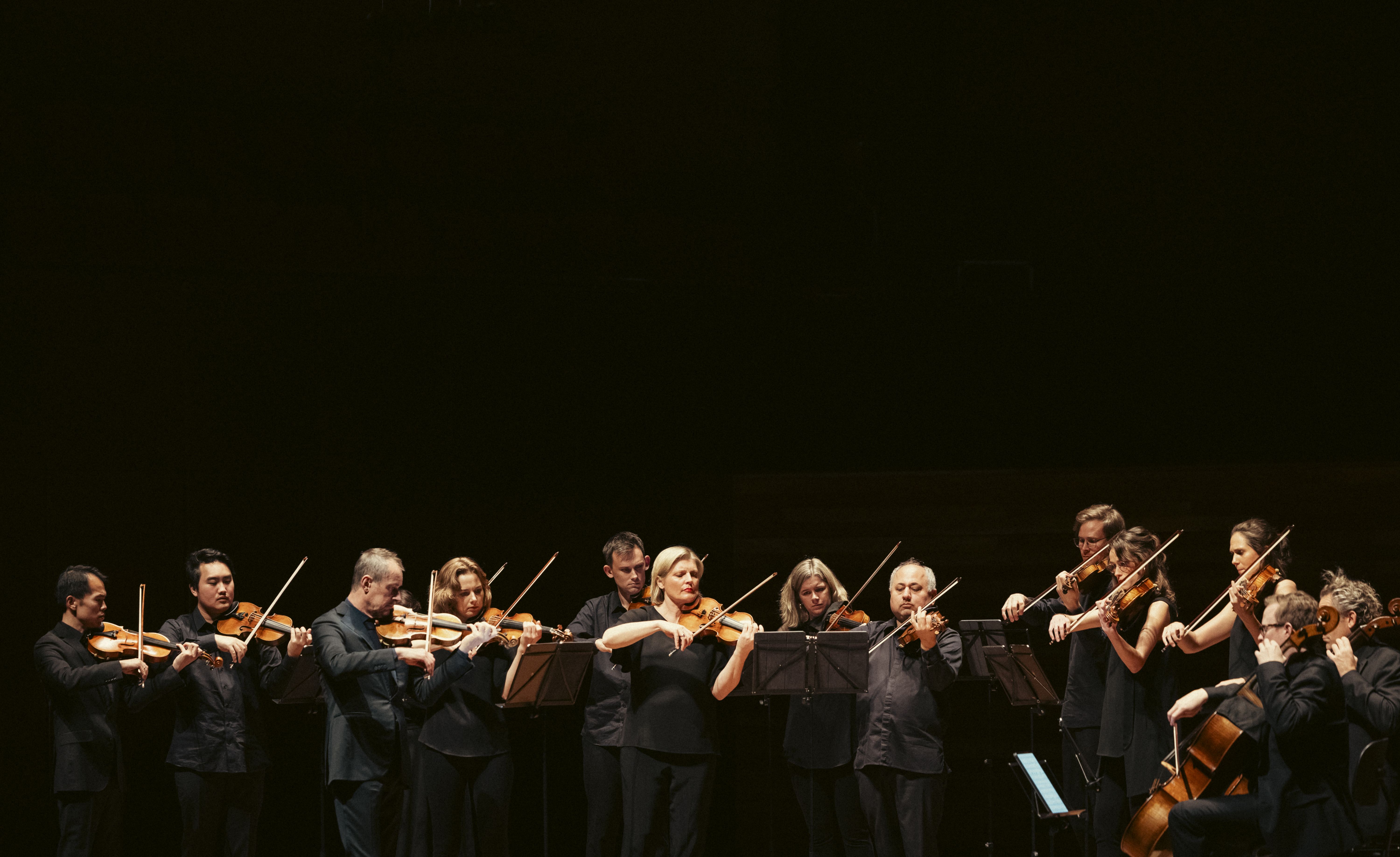Luminous
Lior performs with Richard Tognetti and the Orchestra in Luminous, a multi-sensory concert experience featuring the work of Australian photographer Bill Henson. Learn more about the concert via the link below.

Singer-songwriter Lior speaks to writer Kate Holden about his wide-ranging career as a musician, including the national success of his debut album Autumn Flow and his upcoming ACO debut in Luminous.
This piece was written for the Luminous concert program. A copy of the program will be available at every venue before the concert.
For the past 15 years, this voice of Lior Attar’s has been singing his own music, since the success of his debut album, Autumn Flow. That body of intimate, thoughtful missives from the gentler side of pop balladry, independently produced and fully realised, brought Lior to the public in his late 20s after a long, modest preparation for singer-songwriting. “I spent my later teenage years in bands and learning the craft and how to communicate with other musicians. I always say,” he starts to laugh, “I’m just so fortunate that YouTube wasn’t around when I was a beginner. For me to have artistic control was most important. I built up to it and by the time I put out a whole album it was a body of work I was really proud of. I never thought it would have any success commercially so I thought, at least I can do something I can be proud of for the rest of my life.” Since the surprise of national success in 2005, he has released six albums of his own material, is a multi-ARIA award winner, toured internationally, and written the beloved closing lullaby of ABC Kids’ Giggle and Hoot.
With songs of love, of relationships and his own maturing, the tenderness of his voice expresses the candour of his art. “You think, my work’s probably always going to be a private little thing that I do for myself, and maybe a few people will like it and hear it, and suddenly it’s part of the public arena: it’s kind of weird. Especially when you think that that’s never going to be you. There’s a beautiful transfer of ownership,” he confides. “You write a song and it’s yours; and then someone tells you it’s theirs. That’s the greatest compliment really.” Indeed, his “This Old Love” is a favourite for weddings and crooned by the lovelorn; both fans and fellow musicians cherish his melodies, his lyrics and his unassuming troubadour demeanour.
But Lior has worked his vocal range down some demanding byways. “I look at it like a kind of straight line: the core of me is a singer-songwriter, then I branch off to do musical collaborations as side projects. One reason is to satisfy other aspects of my musical curiosity, that perhaps don’t have a place in my singer-songwriter world. And being a solo artist can be solitary. I enjoy the collaborative element of working together with people like Nigel Westlake and Paul Grabowsky, people I’ve embarked on major collaborations with over the past few years.”
Lior and the Sydney Symphony Orchestra performing La Yuminu from the Compassion orchestral song cycle.
It was in 2013 that the Compassion symphonic song cycle – composed with Westlake, “one of the most beautiful and humble human being I’ve ever met” but in grief following the death of his son – was first performed by the Sydney Symphony Orchestra at the Sydney Opera House. Drawing on Lior’s Israeli heritage and devised to braid Hebrew and Arabic poetry, its central hymn, “Avinu Malkeinu”, is a showstopper, that sweet voice growing in power to a stupendous clarion crescendo, declaring that compassion is the way to liberation. Lior sat in shirtsleeves, acoustic guitar in hand, on a concert hall stage among an orchestra for the first of what has proven many times, as the work has toured Australia and the United States. It won the 2014 ARIA Award for Best Classical Album.
Since then, he has collaborated with shadow puppet artists, appearing again at the Sydney Opera House; performed as Motel Kamzoil in Fiddler on the Roof at Melbourne’s Princess Theatre; and written the score for a play about Charles Darwin, The Wider Earth. In 2017, he collaborated with vocal group The Idea of North and composer Elena Kats-Chernin on an album for the HUSH Foundation, which records music for hospital-bound children. He has worked with Bangarra Dance Company, the Australian Youth Orchestra and, this year, with Paul Grabowsky as part of the Adelaide Cabaret Festival. And, of course, with the Australian Chamber Orchestra.
With this history of genre-leaping, he is a nice choice for a program that includes an indie pop song and a baroque icon. For Lior himself, his encounters with classical music have brought him to a repertoire he might not have discovered: he knew the Britten carol but not the Purcell piece. He is a long admirer of the ACO, however, and was thrilled when they expressed interest in having him as a guest. “The ACO are incredible and held in such high esteem,” he says. “I’ve wanted to work with them and collaborate with them for quite a while now. You feel the dedication and perseverance in their performance.” Likewise, he is a lover of Bill Henson’s work, and says the visual half of the Luminous concept was another lure. Appearing in the program for four works, which spans a “lullaby” originally performed by Sinead O’Connor and another usually sung by a baritone, he happily anticipates pushing his voice further, giving breath to new emotions. “I’m looking forward to working with Richard and the Orchestra to play around and work out where the pitch is in the range that strikes the greatest emotional resonance.”
After years of work with orchestras, he muses on the elements that go into creating what he calls “a beautiful cohesion”. He says, “You don’t realise that when you’re on the other side: the intricacies and intimate workings of an orchestra. So when there’s that moment, when you know, something in you rises and you feel it happening around you, that beautiful magical moment – when that happens, it’s like a miracle. How did all those things happen?”.

Lior performs with Richard Tognetti and the Orchestra in Luminous, a multi-sensory concert experience featuring the work of Australian photographer Bill Henson. Learn more about the concert via the link below.

